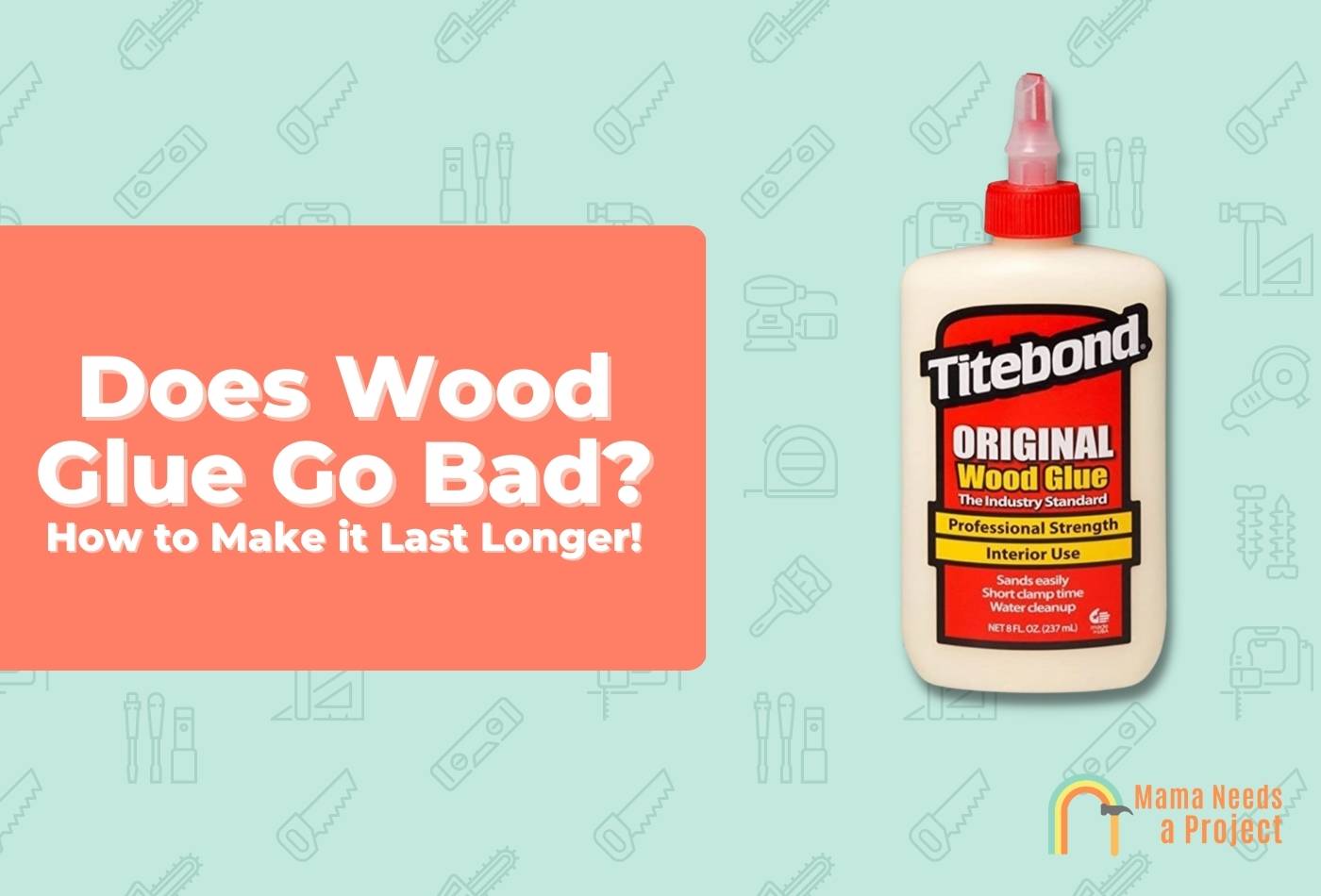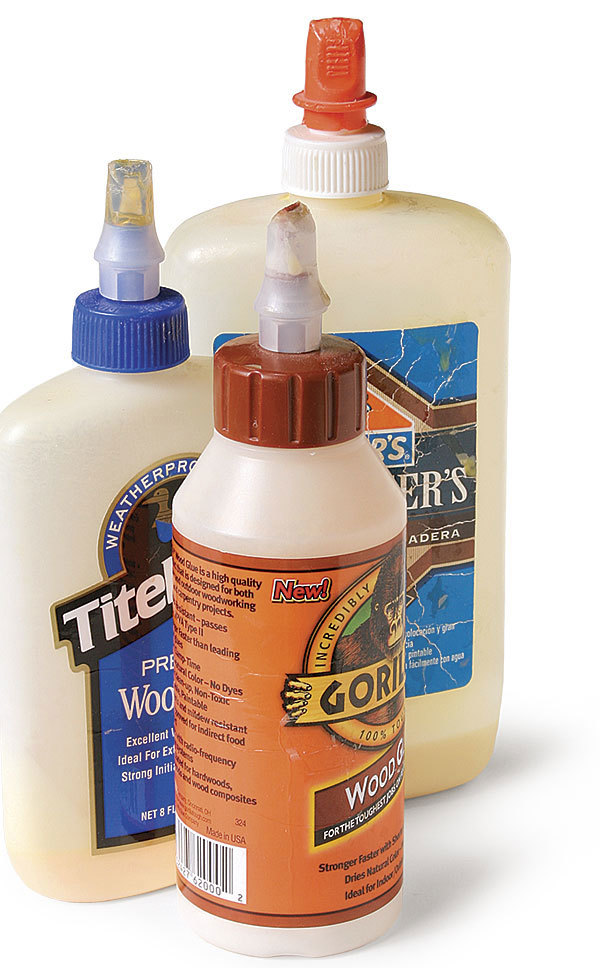Does wood glue get old? If you’ve ever found a long-forgotten bottle of wood glue in your tool kit, you might be wondering if it’s still good to use. Well, fear not, my curious friend, because today we’re going to delve into the fascinating world of wood glue longevity! Can this sticky substance withstand the test of time and hold our projects together, or does it lose its adhesive powers over the years?
Picture this: you’re ready to tackle a woodworking project, only to discover that your trusty bottle of wood glue has been sitting on the shelf for who knows how long. You start to wonder if it’s still effective or if you need to rush to the store for a fresh bottle. Well, worry not, my fellow woodworking enthusiast, because we’re here to answer the burning question: Does wood glue get old?
Now, before we dive into the details, let’s take a moment to understand how wood glue works its magic. Wood glue, also known as carpenter’s glue or PVA glue, is a popular adhesive used in woodworking projects. It bonds pieces of wood together, creating a sturdy and durable connection. Wood glue forms a strong bond by penetrating the fibers of the wood and hardening as it dries, creating a tight and secure joint. But does this remarkable substance lose its potency over time? Let’s find out!

Does Wood Glue Get Old?
Wood glue is a common adhesive used in woodworking projects. It has a long shelf life, but like most products, it can deteriorate over time. In this article, we will explore whether wood glue can get old and what factors can affect its effectiveness. Whether you’re a professional woodworker or a DIY enthusiast, understanding the lifespan of wood glue is crucial for ensuring the success and durability of your projects.
Factors Affecting the Shelf Life of Wood Glue
Wood glue typically has a shelf life of one to two years, depending on various factors. While it may not necessarily spoil like food, it can become less effective over time. Here are some factors that can impact the shelf life and quality of wood glue:
1. Storage Conditions
The way you store wood glue plays a vital role in its longevity. It is best to store it in a cool, dry place away from direct sunlight and extreme temperatures. Changes in temperature can cause the glue to deteriorate more quickly. Keeping the glue tightly sealed when not in use will also help prevent air exposure, which can lead to drying and loss of adhesive properties.
Additionally, storing it upside down can prevent air from entering the bottle and reducing its shelf life. It is important to check the manufacturer’s instructions for specific storage recommendations as different types of wood glue may have slightly different requirements.
Overall, maintaining stable storage conditions is crucial to ensure the longevity and effectiveness of wood glue.
2. Type of Wood Glue
There are various types of wood glue available on the market, and their shelf lives may vary. Most common types such as PVA (polyvinyl acetate) wood glue and epoxy wood glue have similar shelf lives of one to two years when stored properly. However, it’s important to note that specialized wood glues like cyanoacrylate (CA) glue or polyurethane glue may have different storage requirements and shelf lives, so it is crucial to follow the manufacturer’s instructions for optimal usage and storage.
When selecting wood glue, consider the specific needs of your project and the expected timeline. If you anticipate a longer storage period, opt for wood glue with a longer shelf life.
3. Quality of the Wood Glue
The quality and brand of wood glue can also affect its shelf life. Higher-quality wood glues are often formulated with stabilizers and preservatives that can extend their shelf life. It is advisable to invest in reputable brands that provide detailed information about their products’ shelf lives and storage recommendations.
Cheap or expired wood glue may not only have a shorter shelf life but can also have less adhesive strength and overall effectiveness in bonding wood surfaces. It is important to check the manufacturing date and choose fresh, high-quality wood glue for the best results.
Now that we’ve explored the factors that can affect the shelf life of wood glue, let’s discuss some common signs of an old or expired wood glue:
Signs of an Expired Wood Glue
While wood glue does not have a clear expiration date like food products, there are a few signs that indicate its deterioration and reduced effectiveness:
1. Thick or Clumpy Consistency
One of the clearest signs of an expired wood glue is a change in consistency. If you notice that the glue has become thicker, lumpy, or has developed chunks, it is likely past its prime. The thickening of the glue can make it difficult to apply and reduce its ability to penetrate wood surfaces effectively.
If you experience difficulty spreading the glue smoothly or notice inconsistencies in its texture, it may be time to replace it with a fresh batch.
…
…
…
Key Takeaways: Does Wood Glue Get Old?
- Wood glue can have a shelf life and may expire over time.
- Expired wood glue may lose its adhesive strength.
- Inspect the smell and consistency of the glue to determine if it’s still usable.
- Proper storage can extend the lifespan of wood glue.
- If the wood glue has expired, it’s best to purchase a new bottle for optimal results.
Frequently Asked Questions
Wood glue is a commonly used adhesive in woodworking projects. Over time, you may wonder if wood glue can get old and if it still remains effective. Here are some frequently asked questions about the shelf life and longevity of wood glue:
1. How long does wood glue last?
Wood glue typically has a shelf life of about one to two years if stored properly. However, this can vary depending on the brand and type of glue. It is important to check the label or packaging for any specific instructions regarding shelf life.
Factors such as temperature, humidity, and exposure to air can also affect the lifespan of wood glue. Storing the glue in a cool, dry place and tightly sealing the container can help prolong its usability.
2. How can I tell if wood glue has gone bad?
Wood glue that has expired or gone bad may exhibit certain signs. Some common indicators include a strong sour odor, thickening or lumps in the glue, and a change in color. If you notice any of these signs, it is best to replace the glue as it may not bond properly.
Additionally, if the wood glue has been frozen or subjected to extreme temperatures, it may lose its effectiveness and should be discarded. It is always recommended to do a test bond on scrap wood before relying on expired or questionable glue for important projects.
3. Can I still use wood glue if it has expired?
Using wood glue that has expired is not recommended, as it may not provide the desired bond strength and longevity. Expired glue can result in weak joints and may compromise the structural integrity of your woodworking projects.
To ensure the best results, it’s advisable to use fresh, unexpired wood glue. Investing in a new bottle of glue is often more time and cost-effective than risking the quality of your projects with expired adhesive.
4. How can I extend the shelf life of wood glue?
To extend the shelf life of wood glue, proper storage is crucial. Always tightly seal the container after each use to minimize exposure to air. Store the glue in a cool and dry place, away from extreme temperatures and humidity.
If the glue starts to thicken or becomes difficult to work with, you can add a small amount of water to restore its consistency. However, it’s important to note that excessive dilution can affect the adhesive properties, so it’s best to follow the manufacturer’s recommendations.
5. Are there any alternatives to wood glue that have a longer shelf life?
If you’re concerned about the shelf life of wood glue, there are alternative adhesives available that may have a longer lifespan. Epoxy adhesives, for example, are known for their durability and longer working time. They can be a good option for projects where extended bonding time is required.
However, it’s important to note that different adhesives have different properties and may not be suitable for all woodworking applications. It’s always a good idea to consult the instructions and recommendations provided by the manufacturers to ensure you select the appropriate adhesive for your specific project.

The Surprising TRUTH about Wood Glue
Summary
Wood glue can get old and expire, becoming less effective over time. Old wood glue may not bond well or hold its strength, leading to weak joints or projects that fall apart. Expiration dates and storage conditions are important to ensure the glue remains usable for longer periods.
It is recommended to check the expiration date on the wood glue bottle and store it properly in a cool, dry place. Testing a small amount of the glue on scrap wood before using it on a project can determine its effectiveness. Remember, using fresh and properly stored wood glue will help ensure strong and long-lasting bonds.
